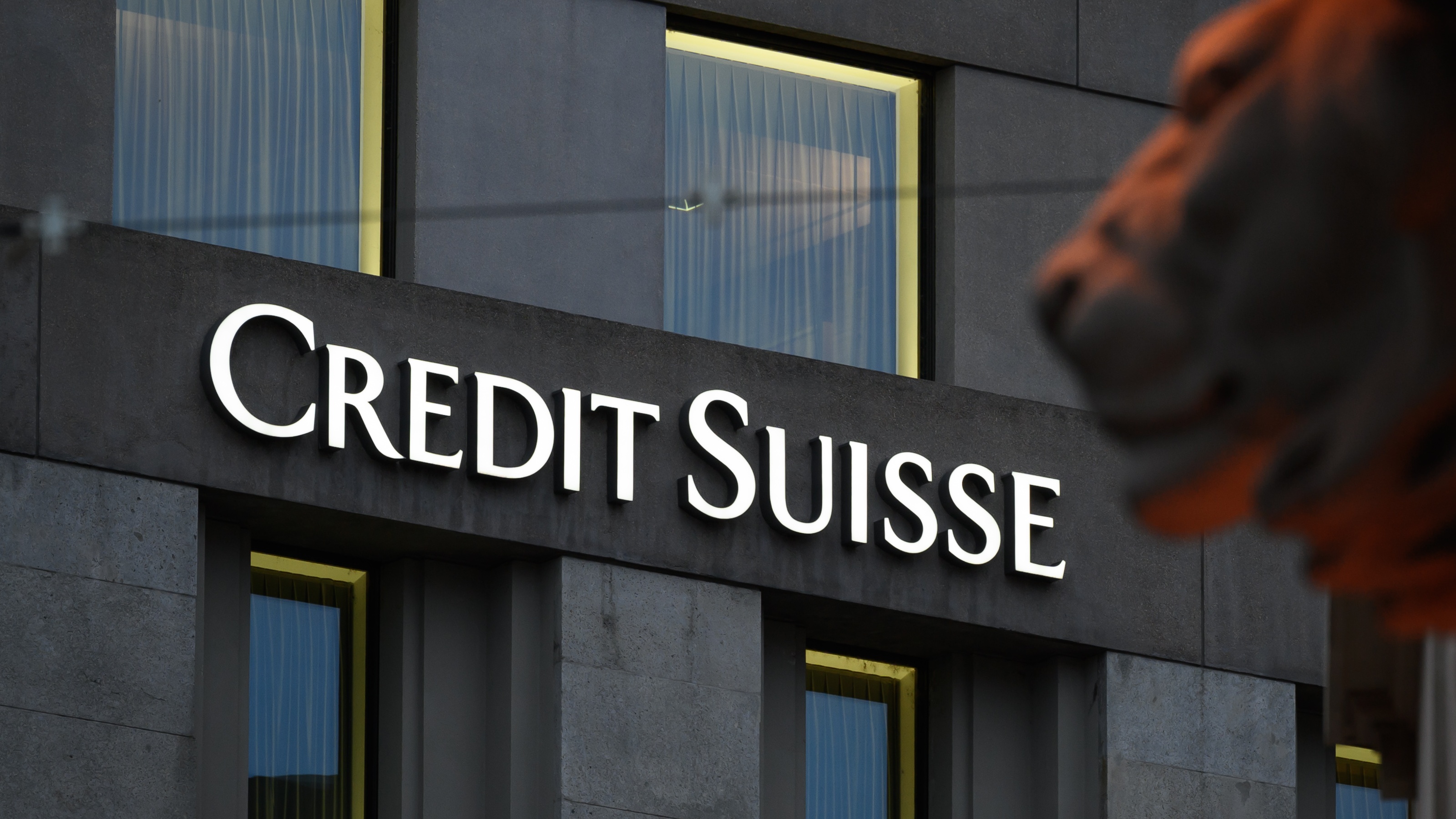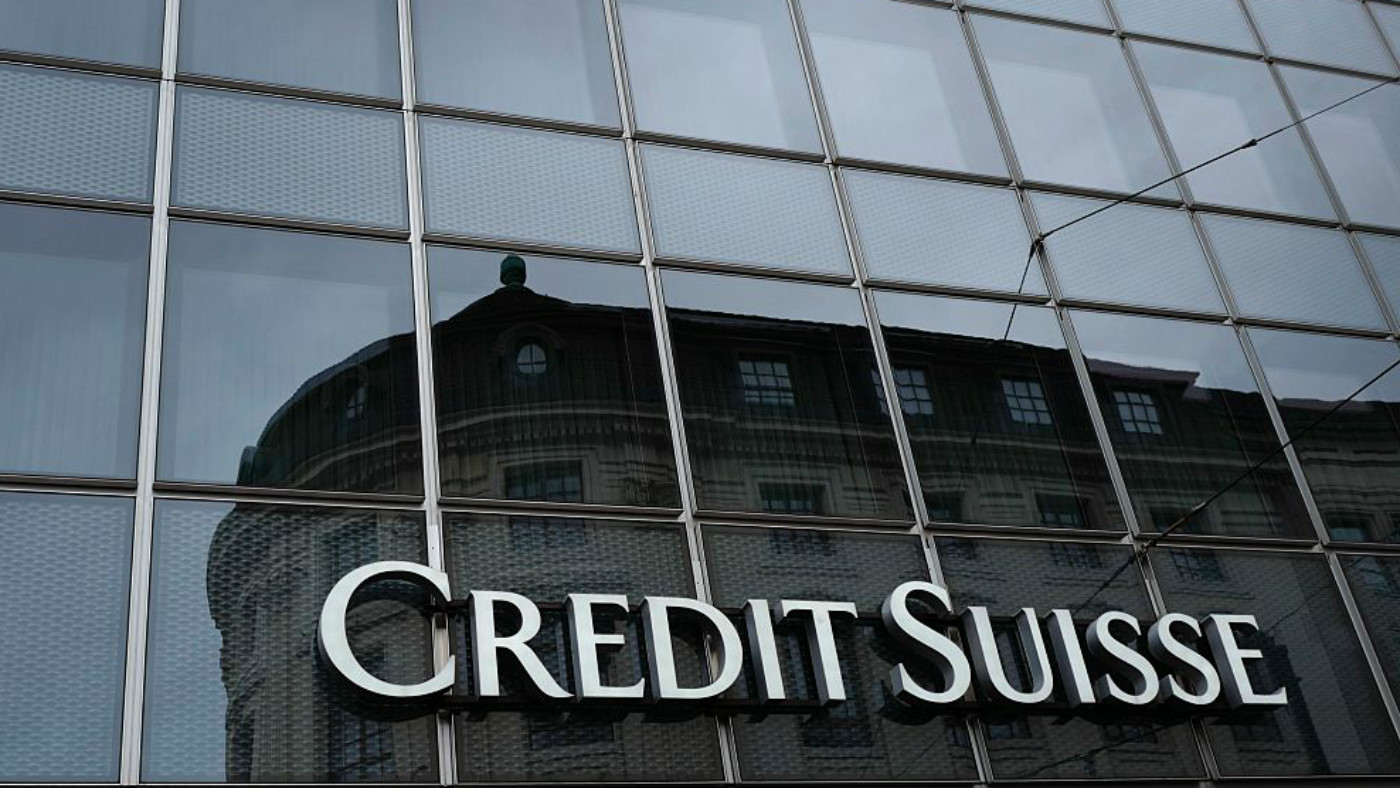A timeline of the Credit Suisse scandals
The Swiss bank is in crisis mode again after a massive leak of data

A free daily email with the biggest news stories of the day – and the best features from TheWeek.com
You are now subscribed
Your newsletter sign-up was successful
Leaked details from more than 18,000 accounts at one of the world’s biggest private banks have revealed an extensive list of clients involved in torture, drug trafficking, human rights abuses and other serious crimes.
The accounts hold more than 100bn Swiss francs at one of Switzerland’s “best-known financial institutions”, Credit Suisse bank, reported The Guardian.
The leaks point to “widespread failures of due diligence by Credit Suisse, despite repeated pledges over decades to weed out dubious clients and illicit funds”, said the paper, which was part of a consortium of 48 media outlets given exclusive access to the data.
The Week
Escape your echo chamber. Get the facts behind the news, plus analysis from multiple perspectives.

Sign up for The Week's Free Newsletters
From our morning news briefing to a weekly Good News Newsletter, get the best of The Week delivered directly to your inbox.
From our morning news briefing to a weekly Good News Newsletter, get the best of The Week delivered directly to your inbox.
Analysis reveals how Credit Suisse “repeatedly either opened or maintained bank accounts for a panoramic array of high-risk clients across the world”. These included “a human trafficker in the Philippines, a Hong Kong stock exchange boss jailed for bribery, a billionaire who ordered the murder of his Lebanese pop star girlfriend and executives who looted Venezuela’s state oil company, as well as corrupt politicians from Egypt to Ukraine”, said the paper.
The information was initially leaked to German newspaper Suddeutsche Zeitung by an anonymous whistleblower, who said Swiss banking laws were “immoral”.
The paper then partnered with many media companies across the world to investigate the data linked to tens of thousands of accounts, some of which go “as far back as the 1940s” and “more than two-thirds of which had been opened since 2000”, with many still open today.
The bank has said it “strongly rejects” the allegations against it, arguing that reporting has been based on “selective information taken out of context, resulting in tendentious interpretations of the bank’s business conduct”.
A free daily email with the biggest news stories of the day – and the best features from TheWeek.com
But the data leak is far from the only scandal to hit the financial institution in recent years. The Week takes a look at some of the biggest controversies the beleaguered bank has had to weather.
1. Chairman resigns for breaking Covid rules
Antonio Horta-Osorio resigned as Credit Suisse chairman on 17 January 2022 after “repeated breaches” of Covid-19 quarantine rules, less than a year after taking up the role.
An investigation by the bank’s board found that Horta-Osorio, the former chief executive of Lloyds Banking Group, had broken quarantine rules several times, “including on a trip to London last year to watch the Wimbledon tennis finals”, reported the Financial Times.
His exit was a “severe embarrassment” for the Credit Suisse, which recruited the Portuguese banker to “help reset its strategy” after previous scandals “damaged the bank’s reputation for risk management and raised questions over its leadership”, said the paper.
Credit Suisse immediately appointed board member Axel Lehmann as its chairman, who had been “at the helm for only five weeks” before the massive data leak, said The Guardian.
2. Tuna bonds scandal
The Swiss bank was fined nearly £350m by global regulators in October 2021 after pleading guilty to wire fraud in a long-running scandal that pushed the country of Mozambique “into a financial crisis”, reported The Guardian.
The so-called “tuna bonds scandal” arose from $1.3bn (£940m) worth of loans that Credit Suisse arranged for the Republic of Mozambique between 2012 and 2016, supposedly aimed at “government-sponsored investment schemes including maritime security projects and a state tuna fishery”.
But “a portion of the funds were unaccounted for”, said the paper, and one of Mozambique’s contractors was later found to have covertly arranged hefty kickbacks “worth at least $137m, including $50m for bankers at Credit Suisse meant to secure more favourable deals on the loans”, regulators found.
The international scam then “snowballed” leading the International Monetary Fund (IMF) to suspend its assistance to Mozambique, ultimately causing a financial crisis in the country.
3. Default of Archegos hedge fund
The bank lost $5.5bn when Archegos Capital Management collapsed in early 2021.
The US hedge fund’s “highly leveraged bets on certain technology stocks backfired and the value of its portfolio with Credit Suisse plummeted”, explained Reuters.
An independent report into Credit Suisse’s involvement with the risky hedge fund “slammed the bank’s conduct” and found that its losses were the result of “a fundamental failure of management and control at its investment bank, and its prime brokerage division in particular”, said the news agency.
It said the bank was “focused on maximising short-term profits” ultimately failing to “rein in voracious risk-taking” by the fund “despite numerous warning signals”.
4. Greensill Capital collapse
The bank was forced to suspend $10bn of investor funds in March 2021 when the British supply-chain lender Greensill Capital collapsed.
Credit Suisse had “sold billions of dollars of Greensill’s debt to investors, assuring them in marketing material that the high-yield notes were low risk because the underlying credit exposure was fully insured”, said Reuters.
Several investors have sued the bank over the Greensill-linked funds, with the bank still in the process of trying to “claw back money for clients”, said The Guardian.
The bank said in September last year that it had returned about $6.3bn to investors, but has warned it may not be able to reccover another $2.3bn of losses.
5. Corporate spying
Credit Suisse’s former chief executive Tidjane Thiam was forced to leave the bank in March 2020 after an investigation found that it had spied on two of its employees.
The bank hired private detectives to follow Iqbal Khan, its former head of wealth management who was leaving to join its arch-rival UBS, and on Peter Goerke, its former head of human resources.
Credit Suisse “repeatedly played down” the spying allegations but in October last year the Swiss Financial market Supervisory Authority (FINMA) said that the bank had planned spying operations on “seven occasions between 2016 and 2019, and carried out most of them”, reported Euronews.
6. US sanction breaches
Credit Suisse was fined $536m in 2009 for violating US sanctions against Iran and several other countries, including Libya, Sudan, Burma and Cuba, between 1995 and 2007.
The US Justice Department said that the bank had “processed payments allowing those countries access to American financial institutions – a practice that Washington had banned”, explained Deutsche Welle.
It was the “biggest such fine in the history of violations of US sanctions” and had the bank not cooperated, authorities said they would have “had to pay even more”, said the German news site at the time.
7. Covering for dictators
In 1995 Credit Suisse was among the Swiss banks ordered to return nearly half a billion dollars stored in the accounts of Philippine dictator Ferdinand Marcos, funds which the Philippines said was “plundered from the national treasury”, reported the Associated Press at the time.
It was later revealed that Credit Suisse opened accounts for the dictator and his wife under the names “William Saunders” and “Jane Ryan”, which helped to “shield their funds from scrutiny”, said The Guardian.
-
 Health insurance: Premiums soar as ACA subsidies end
Health insurance: Premiums soar as ACA subsidies endFeature 1.4 million people have dropped coverage
-
 Anthropic: AI triggers the ‘SaaSpocalypse’
Anthropic: AI triggers the ‘SaaSpocalypse’Feature A grim reaper for software services?
-
 NIH director Bhattacharya tapped as acting CDC head
NIH director Bhattacharya tapped as acting CDC headSpeed Read Jay Bhattacharya, a critic of the CDC’s Covid-19 response, will now lead the Centers for Disease Control and Prevention
-
 Credit Suisse: will emergency lifeline calm global bank fears?
Credit Suisse: will emergency lifeline calm global bank fears?Today's Big Question Sell-off at Switzerland’s second-largest bank came days after Silicon Valley Bank collapse
-
 Credit Suisse raises more than £3bn to plug capital hole
Credit Suisse raises more than £3bn to plug capital holeSpeed Read Bank announces plan in quarterly results ahead of extraordinary general meeting on 18 May